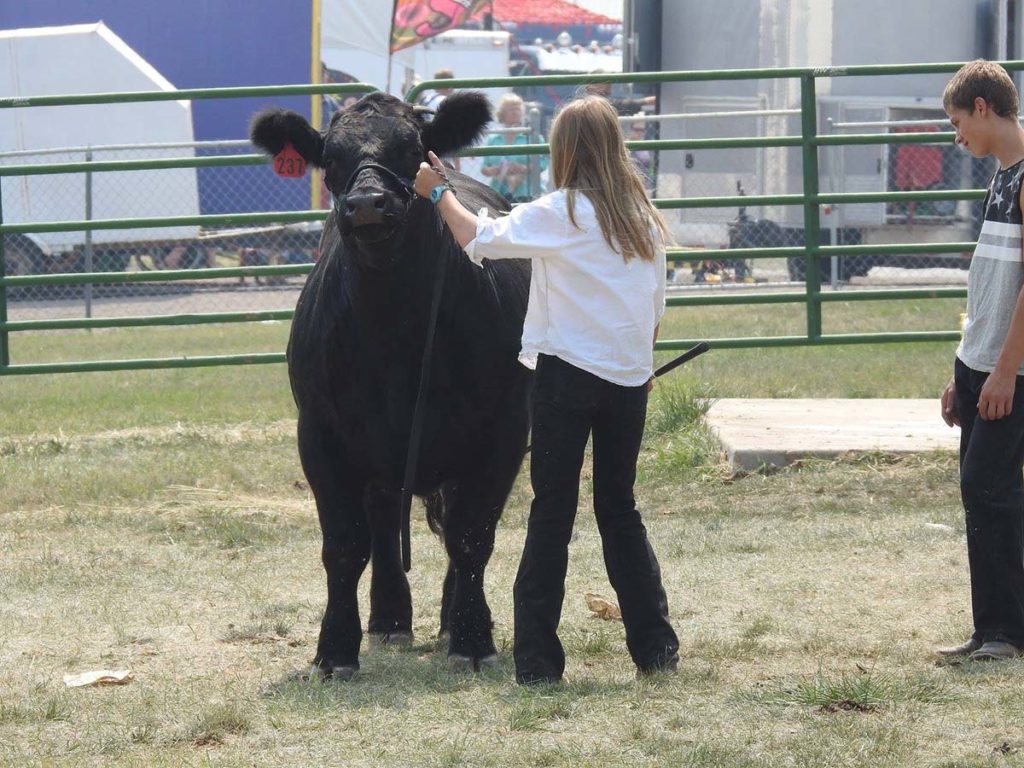
A Montana electric cooperative has a creative way to stock local food banks with fresh, local meat, a staple that’s becoming prohibitively expensive for many food shoppers.
Headed into its seventh year, Flathead Electric Cooperative’s Ribeye Raffle at the Northwest Montana State Fair has raised nearly $30,000 and donated about 6,000 pounds of ground beef to seven local food banks in the area. The meat comes from livestock raised and shown by 4-H and FFA youths at the fair, held each August at the Flathead County Fairgrounds in Kalispell.
The partnership is “fantastic,” said Adam Sommers, development manager at Flathead Food Bank. “It really speaks to the kind of rural and rugged nature of Montana where an electric co-op connects with the local 4-H club, buys livestock animals that kids have raised, and processes them. And then we get to distribute that meat to individuals and families most in need.”
Ticket sales beefed up since 2020 when the pandemic temporarily shuttered Flathead EC’s headquarters in Kalispell and the co-op switched to an online raffle after getting approval from the state’s Gambling Control Division.
“It’s a pandemic silver lining,” said Courtney Stone, the co-op’s public affairs specialist. “When we were forced to shift from paper only to online, our raffle ticket sales grew exponentially from an average of $1,000 to over $10,000 each year—all of which goes straight to the food banks in our service area.” Tickets will continue in both formats this year.
The Ribeye Raffle began in 2016 and was the creation of Ross Holter, who recently retired as the co-op’s director of member and energy services. While many co-ops support their county and state fairs with purchases of steer, hogs and lambs, Holter wanted Flathead EC’s purchase to have more impact.
“We realized it was a travesty to take those prime cuts of beef and grind them into hamburger, especially when we have some of the best beef on the planet,” said Holter. “So we came up with the idea of the Ribeye Raffle, where we take out prime cuts of beef and sell raffle tickets with all the benefits going to the local food banks.”
And with meat costs impacted by double-digit inflation these days, the Ribeye Raffle helps stretch food budgets, too. Each of the two winners get not only 60, 1-inch-thick prime cuts of beef, but the co-op also takes care of costs associated with processing the animals, which can total upward of $1,000 at auction. The remaining meat—about 1,000 pounds of ground beef—is divided among the food banks.
“The premium cuts are worth well over $500 per winner, which today would be more like $750,” said Stone.
The online raffle is a novel twist at the fair, a 120-year-old tradition described by many as a “cultural phenomenon” in the Big Sky State.
“We have more cows than people in Montana, so it’s a project that the whole state can get behind,” says Stone.
Victoria A. Rocha is a staff writer for NRECA.